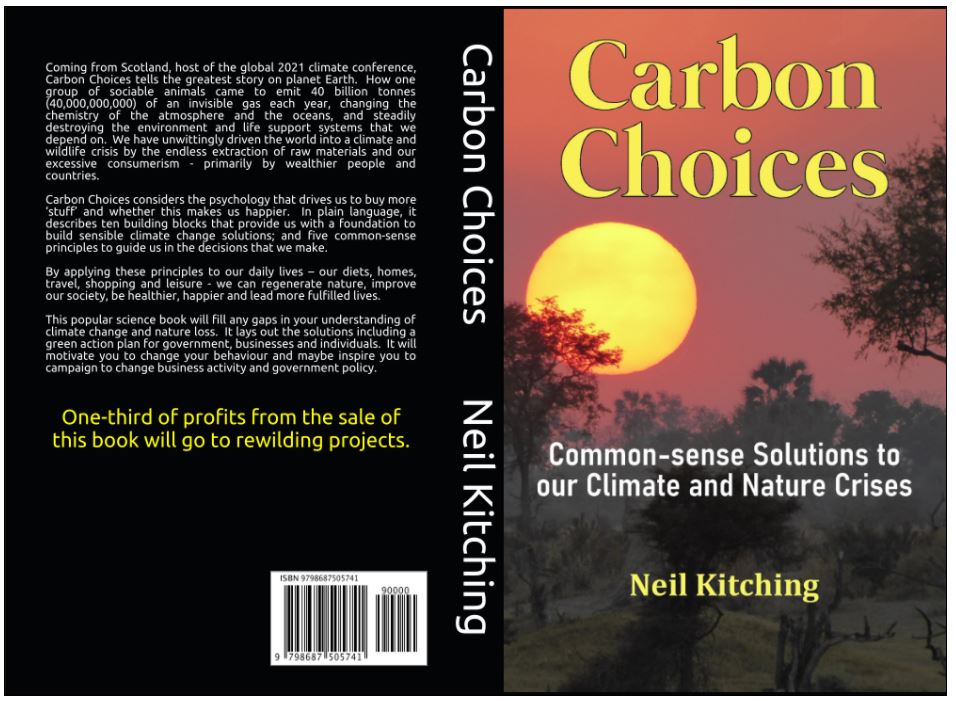If you’ve been wanting a handy summary of the actions needed to tackle climate change and why – look no further!

Community energy investor and Gower Regeneration member, Neil Kitching, has published a book, “Carbon Choices” on the fundamental solutions to our climate and nature crises. Here Neil sets out his five common-sense principles and the changes they require.
“I am a geographer, energy specialist and also qualified many years ago as an accountant. Community energy investment – which combines these three areas – is a natural interest of mine.
In my book, I identify five common sense principles to tackle climate change:
- Be fair across current and future generations
- Price carbon pollution
- Consume carefully, travel wisely
- Embrace efficiency, avoid waste
- Nurture nature
“Running across these principles is the theme of community. Climate change can be tackled by governments, business or individuals; but communities can aggregate individual action to demand or support action by government and business.
“For example, when the rush to erect wind farms was at its peak, Local Energy Scotland helped the village of Fintry to negotiate with the multi-national developer. The community now owns one of the 15 turbines erected, bringing a steady flow of income into the village – to refurbish community owned buildings, give energy advice to householders and install home insulation. The wind farm developer benefitted from engaging with a supportive community.
“But community energy requires time, money, effort and patience, and is not always successful. Its growth has been hampered by constant changes in the available subsidies, and most schemes need financial support. One way of raising this is through crowdfunding campaigns.
“Crowdfunding can provide people with a vested interest in local developments. The best schemes also return some of the ‘profits’ to local communities.
“In my local town of Dunblane, a social enterprise has set up Weigh Ahead, a shop aiming to eliminate the need for packaging, particularly single-use plastics. They weigh customer’s own containers, fill them with goods such as rice or pasta, and then re-weigh them to calculate the amount due. A charity runs the shop and local people contributed to its start-up costs through a crowd funding campaign. Again, the aim is to provide a socially beneficial service.”
Investing in community projects is something we’re all for! Check out these local crowdfunding campaigns and consider supporting them, as well as local plastic-free shops like Pobbles in Southgate and Balance in Sketty.
Thanks to Neil for producing this ‘popular science’ book which gives grounds for hope, concluding with a green action plan for government, business and individuals to make better Carbon Choices.
















